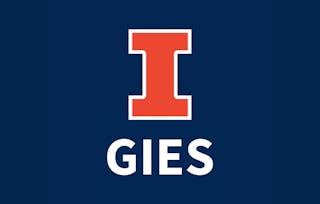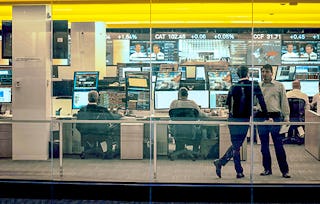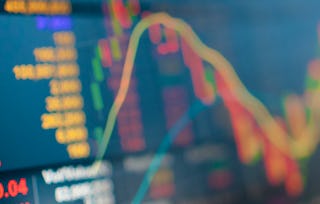In this course, participants will learn about how different markets around the world can interact to create value for, and effectively manage the risk of, corporations and their stakeholders. This is part of a Specialization in corporate finance created in partnership between the University of Melbourne and Bank of New York Mellon (BNY Mellon).

The Role of Global Capital Markets
Seize the savings! Get 40% off 3 months of Coursera Plus and full access to thousands of courses.

The Role of Global Capital Markets
This course is part of Essentials of Corporate Finance Specialization


Instructors: Paul Kofman
29,854 already enrolled
Included with
653 reviews
Skills you'll gain
- International Finance
- Economic Development
- Market Liquidity
- Governance
- Financial Regulation
- Risk Management
- Capital Markets
- Market Analysis
- Corporate Finance
- Financial Systems
- Market Dynamics
- Financial Market
- Skills section collapsed. Showing 10 of 12 skills.
Details to know

Add to your LinkedIn profile
See how employees at top companies are mastering in-demand skills

Build your subject-matter expertise
- Learn new concepts from industry experts
- Gain a foundational understanding of a subject or tool
- Develop job-relevant skills with hands-on projects
- Earn a shareable career certificate

There are 4 modules in this course
We begin this course by exploring the importance of the financial market environment on corporate financial decision-making. Using the example of Kellogg’s, we cover the key financial markets that are reflected in the company’s financial statements. We briefly introduce their key functions and features in providing flow of funds, price discovery and risk management.
What's included
7 videos7 readings2 assignments
This week we discuss the value added by financial markets to corporate development and economic growth. We cover the key roles of price discovery, flow of funds, efficient capital allocation, portfolio diversification and corporate governance. Introducing the influential participants in financial markets, we discuss how they contribute to the efficiency of those markets. We stress the important empirical result that countries with more developed and efficient financial markets experience faster economic growth and development.
What's included
8 videos1 reading2 assignments
In week 3 we discuss the limits to economic growth imposed by imperfections and inefficiencies in global financial markets. The need for liquidity (and the impact of a lack of liquidity) to guarantee efficient markets has been evident in the recent financial crisis. We also discuss the necessary trust in, and integrity of financial markets. Governments, regulators and rating agencies fulfil an important role to secure trust in the fairness and integrity of markets, but there is also a strong incentive for self regulation of markets.
What's included
5 videos1 reading2 assignments
In the final week of this course we focus our discussion on the interrelatedness of (global) financial markets. What happens on the New York Stock Exchange affects equity markets worldwide, and a crash in the commodity market may trigger a sharp depreciation in a currency on the foreign exchange market. We discuss how this “web” of capital markets contributed to the Global Financial Crisis, and what the future holds for financial markets.
What's included
6 videos4 readings3 assignments1 peer review
Earn a career certificate
Add this credential to your LinkedIn profile, resume, or CV. Share it on social media and in your performance review.
Instructors

Offered by
Explore more from Finance
 Status: Preview
Status: PreviewUniversity of Illinois Urbana-Champaign
 Status: Free Trial
Status: Free TrialThe University of Melbourne
 Status: Free Trial
Status: Free TrialRice University
 Status: Free Trial
Status: Free TrialThe University of Melbourne
Why people choose Coursera for their career

Felipe M.

Jennifer J.

Larry W.

Chaitanya A.
Learner reviews
- 5 stars
69.52%
- 4 stars
22.81%
- 3 stars
6.58%
- 2 stars
0.61%
- 1 star
0.45%
Showing 3 of 653
Reviewed on Mar 25, 2016
Very useful and thought provoking course. Recommended for those who are new to capital markets as well as those who're keen to understand the latest developments of the markets.
Reviewed on Jun 29, 2024
I had an exceptional experience throughout the course journey, marked by continuous learning and professional growth.
Reviewed on Oct 11, 2020
This Course has helped me widen my perceptive towards the global capital markets

Open new doors with Coursera Plus
Unlimited access to 10,000+ world-class courses, hands-on projects, and job-ready certificate programs - all included in your subscription
Advance your career with an online degree
Earn a degree from world-class universities - 100% online
Join over 3,400 global companies that choose Coursera for Business
Upskill your employees to excel in the digital economy
Frequently asked questions
To access the course materials, assignments and to earn a Certificate, you will need to purchase the Certificate experience when you enroll in a course. You can try a Free Trial instead, or apply for Financial Aid. The course may offer 'Full Course, No Certificate' instead. This option lets you see all course materials, submit required assessments, and get a final grade. This also means that you will not be able to purchase a Certificate experience.
When you enroll in the course, you get access to all of the courses in the Specialization, and you earn a certificate when you complete the work. Your electronic Certificate will be added to your Accomplishments page - from there, you can print your Certificate or add it to your LinkedIn profile.
Yes. In select learning programs, you can apply for financial aid or a scholarship if you can’t afford the enrollment fee. If fin aid or scholarship is available for your learning program selection, you’ll find a link to apply on the description page.
More questions
Financial aid available,
¹ Some assignments in this course are AI-graded. For these assignments, your data will be used in accordance with Coursera's Privacy Notice.

